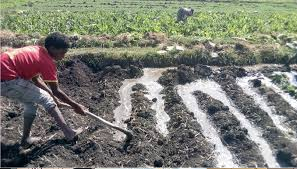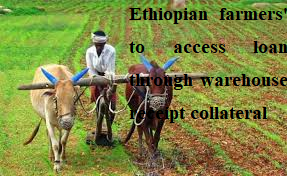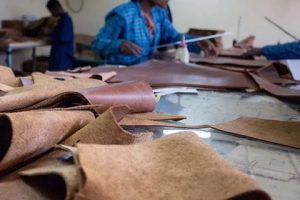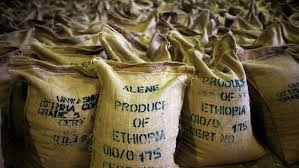
Historical records indicate that agricultural practice both sedentary farming and cattle rearing are centuries old practice. The country also has a long history in domesticating crops, vegetables, fruits and animals. However, irrigation was not likely a driving force for the initiation of ancient civilization in Ethiopia. Since the 1950’s modern irrigation was introduced at the Rift Valley basin for production of commercial crops. Government, donors and NGOs are investing in developing irrigation systems, especially on small-scale irrigations. As a result, irrigation is flourishing.
However, its contribution to the national economy is not significant when compared to rain-fed agriculture. It is evident that irrigation will play a significant role in the food security enhancement and economic development of Ethiopia, provided the efficient use of water is required.
The ancient mode of production in agriculture still thrives and the sector remains subsistence and traditional. Ethiopia has abundant surface and underground water. In addition the nation obtains excessive rain water in the rainy season. However, harnessing water resources and practicing small irrigation farm is still in its primitive stage.
Some suggest that in the highland parts where many rivers originate, the flow of water starts from the steep mountains down to the gorges and the absence of technology to pull water from the gorges to the plateau where farming practice hampers the development of irrigation farm. Until now rain-fed agriculture is the dominant feature of the sector.
It is vulnerable to extreme weather condition including drought and flood and when they occur, crop failure will be a common phenomenon. Expanding Irrigation farm can be an outlet to liberate farmers from subsistence farming and produce twice a year.
Experts agree that small scale irrigation is helpful for enhancing productivity particularly in the drought hit high and mid land parts of the country.
According to the Ethiopian Meteorology Agency, there are about 105 woredas which are chronically drought prone regions and to reverse the negative repercussion of extreme weather condition farmers should try to practice irrigation. In the meantime, extension workers should support them.
The agency has stations in various locations where it receives satellite information regarding the weather conditions and disseminates to farmers by its workers and extension service experts to take precautionary measures to with stand disastrous consequence of extreme climate conditions.
However, farmers’ poor capacity to withstand the consequence of drought has caused them to suffer a lot. Moreover, the exacerbating global warming is further drying up water points reducing the flow of water to irrigation dams.
Currently due to shortage of supply of agricultural products in the urban centers the living cost is growing and inflation is aggravating. Taking these as opportunity farmers who produce fruit and vegetable through irrigation can fill the demand gap, stabilize price and boost their income.
In addition to fruits and vegetables crops such as maize, onion, tomato, pepper, salad, cabbage and potato are cultivated by small scale farmers. Therefore, if the sector is boosted to the higher commercial level, in addition to meeting the demand, it enables to create job opportunities to thousands.
Irrigation can be exercised through the retention of rainwater and revitalizing streams and rivers is essential and currently such practice is known nationwide. The practice is helpful to overcome drought and natural calamity related problems.
However though the government endeavors for scaling up small scale irrigation is continued, due to lack of awareness in various places, farmers thought that water is valuable for raising productivity and let excessive water to the farm and face bad consequences.
The inflow of excessive water to the farm destroys plants, erodes soil and soil nutrients are taken away by water which brought soil infertility. In addition, the oxygen is removed from the soil causing the death of plants and tiny species. The flow of water in the irrigated farm increases the salt content of the water which brings negative consequence.
Some places in Somali and Afar regions can be mentioned as the case in point. In Amibara woreda of Afar region and in Gode area of Somali region due to excessive use of water the salt content of the water is increased and as the result, the farm land has been totally destroyed.
Trying to desalinating the soil is unaffordable for the farmers and this in turn contributes for the dwindling of farmland in those arid areas. Hence, instead of desalinating the soil, it is preferable to utilize the water cautiously and economically in a coordinated manner.
It is understood that water is one of the driving force for enhancing agricultural productivity. However, recklessness in the utilization of water costs farmers dearly. Farmers should pursue the instruction of extension workers advice as an input for effective utilization and for enhancing productivity at large.
The utilization of irrigation water has its own technique based on the soil type and the plant and the amount of water and disregarding these facts will make the endeavor futile.
To utilize water economically and feasibly practicing various options is essential. There are various types of usage of water for agriculture and among others drip irrigation is verified that it is feasible through adopting the technology.
It is proved that countries with arid temperature that suffer from scarcity of surface and underground water could with stand the problem and boost their agriculture production and productivity. Among the countries, Israel can be mentioned as the case in point. The country is located in one of the most arid places in the Middle East and yet it is one of the fruit and vegetable products exporter to the world market and behind their modern agriculture there is drip irrigation system which helped the country to use its scarce water resource economically and efficiently.
In our country, Drip irrigation proved that it enables to reduce salt risks and it is better for farmers to look the system as an alternative.
The drip system for the first time was implemented in the arid parts of Tigray region by small-scale farmers supported by the regional government and encouraging results were registered in boosting fruit and vegetable production. Farmers engaged in drip irrigation played pivotal role in supplying their products to the market and meeting the demand. But due to the rampant political instability and conflict in the area farmers were unable to sustain the practice and their efforts reversed. Had it been scaled up in other parts of the country, changing the irrigation landscape would have been realized.
Water is a valuable resource used for various purposes. It is used for household and sanitarian purposes. It is utilized as input in industrial and large scale irrigation. It is also utilized for recreational purpose for sport and swimming and boat traveling but it should be utilized systematically and economically.
According to studies in Ethiopia only below 50 percent of the population is obtained piped water and the water consumption of the population per day is below the average in Sub Saharan Countries.
In the case of small-scale irrigation farming, small-scale farmers practice in small plots of land because of their fragmented settlement. They use the water one after the other and in this case the excess flow of water in one farm reduces the water flow to the other area as the result, crops will not get sufficient water. The long distance flow of water also poses evaporation which intern decrease productivity.
The uneconomical usage of irrigation water is also observed in Southern Gonder Zone of Amhara State. According to the zonal agriculture office water experts among ten woredas in the zone, three of them such as Dera, Fogera, and Lim are dry but by employing their maximum effort, they cultivate their farm by pumping underground water. However, the inflow of excess water to the farm cause over utilization.
To tackle the problem doing their job with the consultation of extension workers is essential. In addition to wastage the excessive utilization of water exposes the plant to diseases.
Due to lack of awareness about the bad effect of excessive water on farm, farmers in Jima and Horogudru areas of Oromia practiced used to apply excessive irrigation water in their farm. According to the woreda Agriculture Bureau Irrigation Expert farmers were given training to tackle the problem.
According to the Ministry of Irrigation and Lowland Areas in Ethiopia, there is about 5.3 million hectares of land which can be utilized for irrigation of which only 3 percent is utilized.
To maximize the irrigation farm at the small-scale level the practice should be enhanced. The majority of the farmers engaged in rain fed small farms suffer from the trap of drought and uncertainty and to overcome such problem expanding irrigation practices should be enhanced. Attaining food security in traditional way of farming is impossible. Hence, with the support of extension workers improving farming system is essential.
The government paid attention to expansion of small-scale irrigation and plans are prepared to change the farming landscape. Hence, all stake holders should stand together to improve the sector.
BY ABEBE WOLDE GIORGIS
THE ETHIOPIAN HERALD FRIDAY 25 APRIL 2025





